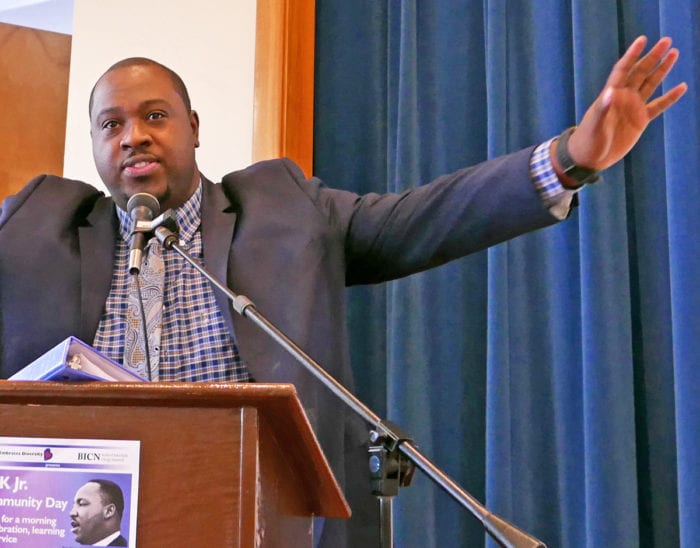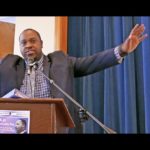
We are living in some unprecedented and dangerous times—the likes of which this society has not seen since the last major pandemic in 1920. The Spanish flu infected an estimated total of 500 million people worldwide and claimed between 20 million to 50 million victims, including some 675,000 Americans.
The rapid spread of the coronavirus pandemic has laid bare the inequalities in American society regarding who has access to sustainable and equitable healthcare, which students have strong enough support system in their homes to have an optimum experience with remote learning, which workers have the flexibility to work from home, and which do not.
To date, the coronavirus has killed over 65,000 Americans and over 1.1 million Americans have been infected with disease. Conversely, those who are suffering the most severe symptoms and dying are disproportionately people of color and people with low wealth. As reported in USA Today, in neighborhoods across the nation where the median household income was less than $35,000, the coronavirus infection rate is almost double the rate of neighborhoods that have a median income of $75,000 or higher. The national newspaper also points out that the infection rate is five times higher in a majority-minority zip codes than in zip codes with less than 10% nonwhite population.
Not only are Americans being affected with this life threatening disease, but millions of people from all over the world have been infected. Currently the number of fatalities is 248,000, which could more than likely go up by the time you read this.
The coronavirus was never seen in humans before it had begun to spread among the population of Wuhan, a large city in the Chinese province of Hubei. It is reported that someone caught the disease at a seafood market in Wuhan but it is mostly likely that the virus is a zoonotic disease and it came from humans eating bats. This pandemic has laid to bare the effects of globalization and has brought to light the truth that all humanity is connected to each other. Dr. Martin Luther King said: “All men are caught in an inescapable network of mutuality, tied in a single garment of destiny. Whatever affects one directly, affects all indirectly….”
Bishop Desmond Tutu, a South African Anglican cleric known for his work as an anti-apartheid and human rights activist, said something similar to the Dr. King quote above: “My humanity is bound up in yours for we can only be human together. We are different precisely in order to realize our need for one another.
“None of us comes into the world fully formed. We would not know how to think, or walk, or speak, or behave as human beings unless we learned it from other human beings.”
It is clear that we as human beings do not live in a vacuum, but we are interconnected to each other. Certainly, all the great world religions stress this—and the religious belief I subscribe to is the Christian Faith.
In Christian tradition, the Gospels are filled with stories about Jesus healing the sick, comforting the afflicted, performing miracles, teaching didactically and much more. One of the teachings of Jesus that protrude out to me in the Gospels is the two greatest commandments, “Love your neighbor as yourself.” (Matt 22:39). I think the words of Jesus are important for such a time like this because what the world needs is more love. The way this love can be manifested is for people to practice social distancing, wear a mask when outside, follow the instructions of the Center for Disease Control (CDC) in order to stop the spread of this COVID-19. Although some people are not at risk for developing severe symptoms, everyone should take all the precautions necessary to ensure that the disease does not keep spreading and ensure the most vulnerable in the community are protected by their fellow neighbors. This is what love looks like in the midst of the pandemic for our neighbor. Although some people are getting tired of using Zoom, Facetime, phone calls, etc. to connect with people, those are safe ways for people to stay connected during this pandemic.
The earliest a vaccine could be developed could be anywhere from a year to 18 months away. This pandemic is an opportunity for society to model what it would look like for Black, White, and Brown people to unite for the common good of all. It does not matter if you are a Democrat or Republican, person of faith or person of no faith, the coronavirus does not discriminate regarding who it wants to infect. What we need in our society today is revival of love, truth, justice to confront the inequalities that the virus has laid to bear. Perhaps the global spread of coronavirus will wake people up to become more sensitive to the plight of the poor, marginalized and disenfranchised. That is who is suffering the most from the impact of coronavirus, the poor among us.
Perhaps those who run corporations that make millions of dollars while employing thousands of people who are not paid a living wage would start to recognize that employees need a living wage and access to quality healthcare. Perhaps politicians who say so much about justice and do so, little to enact policies that uplift the poor, will start to advocate for the implementation of fair and equitable policies that uplift the most vulnerable.
Perhaps this 2020 pandemic will cause society to develop a moral imagination rooted in love and equality to drive out hate and darkness and evilness. It may seem like an impossible world to create, but it can be done when collective solidarity is built, injustice is challenged and humanity is unified against all forms of human oppression.
Rev. Vernon K. Walker, Public Policy Director of the Young Democrats of Massachusetts, Executive Committee member of the Sierra Club of Massachusetts, Fellow at the Environmental Leadership Fellow Program.

